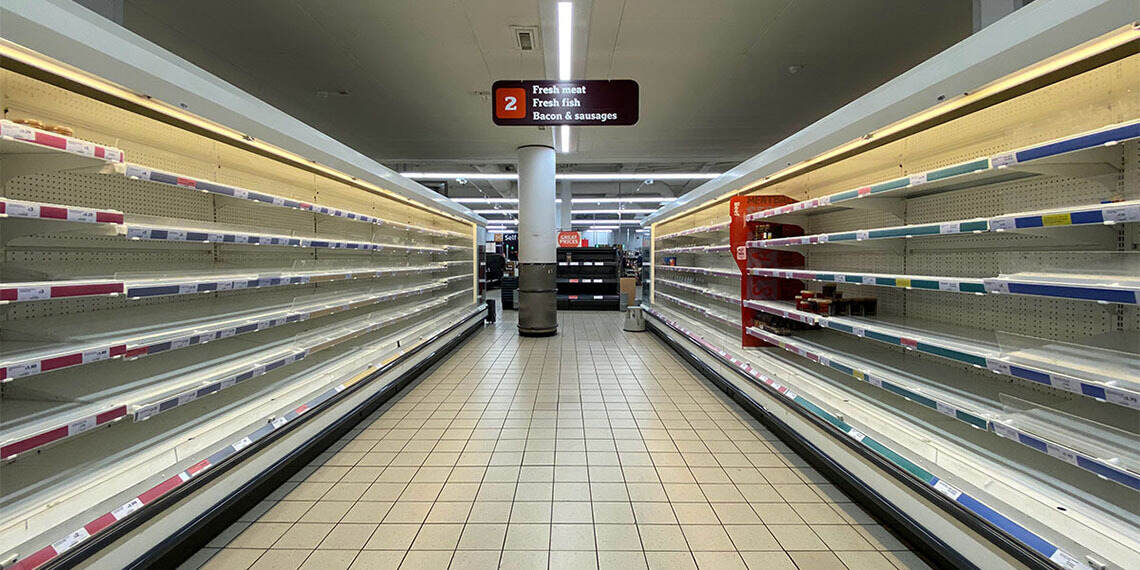What happens when three global, life-changing issues intersect at the same timeline in history?
- The 21st Century Pandemic – affecting around 4 million people globally, with 250,000 fatalities;
- The Great Disruption – the world’s supply chains grinding to almost a halt;
- The Next Great Recession – countries around the world on lockdown, affecting mass livelihood.
What we see now is that the COVID-19 pandemic has brought with it a great deal of disruption that affects all of us in various ways, including an economic downturn that is more aggressive and severe as compared to previous ones we have seen. This puts even greater pressure on how governments and nations address and try to slow down, and eventually eradicate, the contagion: from massive testing, to aggressive contact tracing, enforced quarantines and lockdowns, to treatments and a vaccine – which could take around 12 to 18 months.
What COVID-19 has exposed?
COVID-19 is a disease first and foremost, but it is also a change agent, an eye-opener for people, companies, governments, systems and processes. It has exposed deficiencies in many of our established systems, while inadvertently solving some persistent man-made problems:
- Budgets high on militarization, modernization, and other priorities for many nations, but not on addressing contagious outbreaks;
- Lack of resiliency in many processes -- for many of those firms and government without proper business continuity plans, lockdown meant the economy came to a halt;
- Human nature surrounding the supply and demand spiral -- supply chains got disrupted, things of limited supply went to sky rocketed to levels previously unheard of;
- COVID-19 has caused many troubles, but it seems to have indirectly solved some of man’s perennial problems including traffic and pollution;
- Oil loses its value when there is no consumption.
21st Century Pandemic
The SARS outbreak of 2002 resulted in over 8,000 cases globally, and the MERS (Middle East Respiratory Syndrome) outbreak of 2012 had about 2,500 - which are both miniscule compared to COVID-19, which has so far affected around 4 million people around the world with no immediate slowdown in sight. The rate of infection is still growing, with current statistics showing a spread rate double that of seasonal flu, and a fatality rate more than 10 times of that for seasonal flu.
Among several other theories, SARS-CoV-2, the official name of this novel coronavirus, is believed to have originated from bats which then transmitted it to pangolins before reaching humans. This is in contrast to 2002 SARS-CoV originating from bats to civets, and 2012 MERS-CoV from bats to camels.
As we speak, there has been no definitive vaccine for any of the above coronaviruses. Government bodies and health firms are working together double time in an effort to try and shorten the time that it normally takes to develop, test and approve a vaccine for massive deployment to address SARS-CoV-2. And we need that for more than 7 billion people globally.
The Great Disruption
The more obvious impact and disruption is along the lines of hospital capacity and personal protective equipment (especially masks), which gives us a powerful lesson on how COVID-19 significantly impacts many supply chains -- whether for those producing essential products, services, or both. Even a simple household item such as toilet paper became a trending topic, while most groceries see their shelves emptied, causing even more fear and hoarding behavior in shoppers.
Disruption has similarly affected how people work, how kids learn from school, and almost any other social event people used to enjoy. These include attending religious gatherings, concerts and sporting events, political campaign rallies and other assemblies. The lockdown, in many cases, has reminded people of the great benefit of having the ability to freely move around and meet people in offices, restaurants, shopping malls and schools.
Entire process chains are impacted – from raw material producers, to factories, to shippers, distributors, delivery personnel, and ultimately, the end consumer. The resulting lockdowns led to factory closures, the loss of millions of jobs, and a spiraling global economy.
The Next Great Recession
The economic shock we are witnessing now is both faster and more serious than previous downturns. We can compare and contrast what happened during the 2008 global financial crisis, the 1929 Great Depression and what is unfolding before our very eyes this year 2020. In those two earlier economic downturns, stock markets crashed by 50% or more, credit markets stifled, massive bankruptcies were declared, unemployment rates soared beyond 10% and gross domestic product contracted by more than 10%. And it took around three years in both cases to happen. In our current economic downturn, the same gloom and doom occurred in just around three weeks.
During the 2008 financial crisis, the United States alone had more than 15 million jobless people. This year, there are already more than 26 million unemployment claims in April.
To address this, governments of many nations created various stimulus packages in different shapes and forms, including direct cash disbursements, assistance and financial aids to individuals, families and companies. Because of the enormity of this downturn, we anticipate that fiscal deficits even in more advanced countries will increase to around 10% of GDP or beyond that.
The New Normal
So, what will life look like after COVID-19? People, families, companies and government surely will have learned a lot and some newfound practices will be seen or accepted as the “new normal”. Perhaps more people will start working from home with more regularity. Schools will probably include home-based learning as a key component of their curriculum. The frequency of people watching their hands or using sanitizers will perhaps stay at around similar levels as during the pandemic.
COVID-19 is not only exposing the flaws of many government, private and individual processes, it is demanding and, perhaps to some extent, even forcing firms and people to shape up, digitize or otherwise go extinct.
Organizations will be undergoing some kind of “digital transformation” to help cope better with the challenges that the pandemic has exposed. People will work with digital offices, virtual and remote will become the “in” thing, especially with more capable digital communication and collaboration tools. Students will have digital schools and e-learning with similar virtual environments. Today, people can already do so much with their smartphones, beyond just ordering a pizza or taxi. With the advent of 5G and massive IoT, people will have better connectivity and a user experience in accessing many of today’s manual services, but in a totally digital form. Complex bank transactions will be completed purely online instead of over the counter; there will be more remote medical check-ups; people will play mahjong or poker with someone far away; and we’ll be able to try on different clothes sizes virtually before buying them online … the possibilities are endless.
Closing
This trifecta of life-altering issues creates the perfect storm and will forever change many lives in different ways. In the future, there will be more uncontained pandemics, insufficient economic policies and more disruptions that will be enough to tip the global economy into another meltdown. If we are lucky, perhaps not again in this lifetime.
At Teradata, we help transform companies through the power of data and analytics, so that people can live better lives. This applies to government, telco, health, supply chain, retail, automotive, utility, finance and others. COVID-19 and “The Perfect Storm” it brings with it are certainly no exception.

